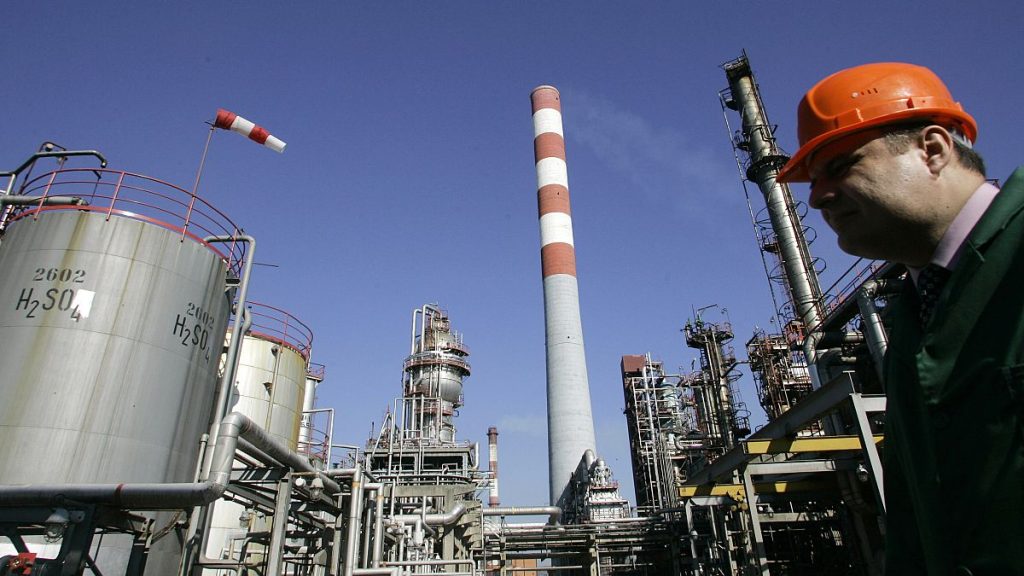The impending sanctions against Serbia’s Naftna Industrija Srbije (NIS), the country’s dominant oil and gas company, underscore the complex geopolitical tightrope Serbia walks between its historical ties with Russia and its aspirations for closer integration with the West. Serbian President Aleksandar Vučić’s announcement that the US is poised to impose sanctions on NIS due to its majority Russian ownership highlights the growing pressure on Serbia to align itself more firmly with the Western condemnation of Russia’s invasion of Ukraine. This development places Serbia in a precarious position, forced to navigate the conflicting demands of its long-standing relationship with Russia and the potential economic and political repercussions of defying Western sanctions.
NIS’s ownership structure lies at the heart of this dilemma. Gazprom Neft, a subsidiary of the Russian energy giant Gazprom, holds a 50% stake in NIS, while Gazprom itself owns an additional 6.15%. The remaining shares are divided between the Serbian government and other smaller shareholders. This significant Russian ownership makes NIS a prime target for sanctions aimed at pressuring Russia over its actions in Ukraine. While Serbia has publicly condemned the invasion in international forums, its reluctance to impose sanctions on Russia has drawn increasing scrutiny from Western powers. The US-led sanctions against NIS represent a significant escalation of this pressure, forcing Serbia to confront the consequences of its balancing act.
President Vučić’s anticipation of similar sanctions from the UK and the EU further complicates Serbia’s situation. The prospect of coordinated sanctions from major Western powers adds significant weight to the pressure on Belgrade. This coordinated approach could severely impact Serbia’s economy, which is heavily reliant on energy imports from Russia and benefits from trade relations with both the East and the West. Navigating this complex web of economic and political considerations will require a delicate balancing act from the Serbian government.
The potential fallout from these sanctions extends beyond immediate economic concerns. Vučić’s acknowledgment of potential complications with Russia across various domains, from political relations to other unspecified areas, underscores the deep intertwining of Serbian and Russian interests. Serbia has traditionally enjoyed strong ties with Russia, encompassing historical, cultural, and economic dimensions. The sanctions against NIS threaten to strain this relationship, forcing Serbia to reassess its alliances and potentially make difficult choices that could alienate a long-standing partner.
Vučić’s mention of exploring options to reduce Russian ownership in NIS below 50% signals a potential strategy for mitigating the impact of sanctions. This approach, however, carries its own set of challenges. Negotiating a reduction in Russian ownership would require delicate diplomatic maneuvers and could face resistance from Moscow. The outcome of such negotiations would have significant ramifications for Serbia’s energy security and its relationship with Russia. It remains to be seen whether such a move would be sufficient to appease Western powers and avert the full force of sanctions.
In conclusion, the impending sanctions against NIS place Serbia at a critical juncture. The country is caught between its traditional ties with Russia and the increasing pressure to align with Western sanctions against Moscow. The potential economic and political ramifications of these sanctions are substantial, forcing Serbia to carefully consider its options and navigate a complex geopolitical landscape. The coming weeks and months will be crucial for Serbia as it grapples with these challenges and seeks to chart a course that safeguards its interests while maintaining stability in a turbulent region.














